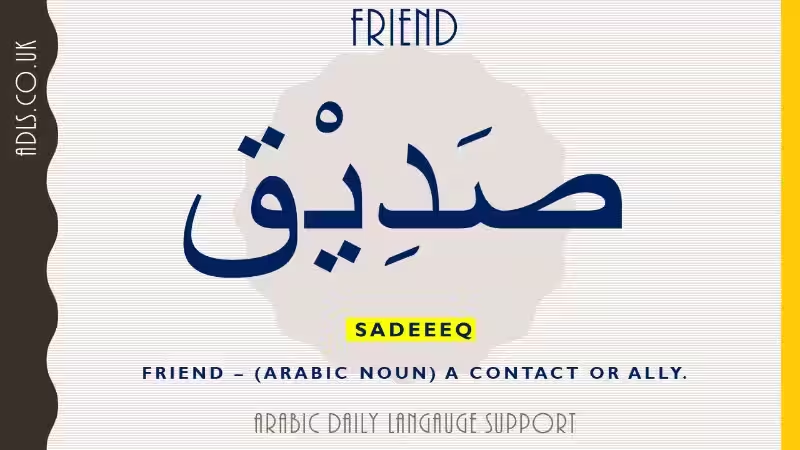
The English word “okay” is a ubiquitous phrase, used to express agreement, understanding, or a neutral response. In Arabic, however, the concept of “okay” is more nuanced and multifaceted. While “tamam” (تمام) is the most common translation, there are other expressions that convey different shades of meaning and context. This article explores the diverse world of saying “okay” in Arabic, offering insights into the cultural implications and subtle nuances of each phrase.
“Tamam”: The Universal “Okay”
“Tamam” (تمام) is the most widely used and understood word for “okay” in Arabic. Its literal meaning is “complete” or “finished,” implying that something is satisfactory or in order. It’s a versatile word that can be used in various situations, from casual conversations to formal settings.
Example:
- “Shukran, tamam” (شكرا، تمام) – “Thank you, okay.”
However, “tamam” is not limited to simply conveying agreement. It can also express:
- A neutral response: “Tamam” can be used to acknowledge a statement without necessarily agreeing or disagreeing.
- Indifference: In some contexts, “tamam” can be used to indicate a lack of enthusiasm or interest.
Beyond “Tamam”: Exploring Other Expressions
While “tamam” is the most common, there are other phrases that enrich the Arabic language and convey different nuances of “okay.” These expressions offer a deeper understanding of the cultural context surrounding acceptance, agreement, and acknowledgment.
“Insha’allah”: Embracing Uncertainty
“Insha’allah” (إن شاء الله) is a common expression that translates to “if God wills it.” It’s often used to express hope, acceptance, or a willingness to go along with something, acknowledging that the future is uncertain.
Example:
- “Insha’allah, bi khar” (إن شاء الله، بخير) – “Okay, God willing.”
It’s important to note that “Insha’allah” is not simply a synonym for “okay,” but rather a way of acknowledging that things are subject to change and that the speaker is accepting the situation with a sense of faith and trust.
“Bi khar”: A Positive Affirmation
“Bi khar” (بخير) literally means “well” or “good.” Used as an affirmative response to “okay,” it conveys a more positive and reassuring tone than “tamam.” It suggests a sense of satisfaction and contentment with the situation.
Example:
- “Hal as-samah’t li bi al-khabar?” “Bi khar” (هل سمحت لي بالخبر؟ بخير) – “Do you allow me to tell you the news?” “Okay, good.”
“Mafi mushkila”: Acknowledging No Problem
“Mafi mushkila” (مافي مشكلة) translates to “no problem” or “it’s okay.” This phrase is used to indicate that a situation is not a cause for concern and that the speaker is accepting it without any issue.
Example:
- “A’sfu, la’is at-tareed.” “Mafi mushkila” (أعذرني، ليس لدي الوقت. مافي مشكلة) – “I’m sorry, I don’t have the time.” “That’s okay, no problem.”
“Aywa”: A Casual Confirmation
“Aywa” (أيوه) is a casual and informal way to say “yes” or “okay.” It’s commonly used in everyday conversations and conveys a sense of agreement or confirmation.
Example:
- “Hal ta’rifu hayda?” “Aywa” (هل تعرف هذا؟ أيوه) – “Do you know this?” “Yes, okay.”
Final Thoughts: Navigating the Nuances of “Okay”
Understanding the various ways to say “okay” in Arabic provides a richer understanding of the language and its cultural context. Each phrase carries a unique nuance and conveys different shades of meaning, from simple agreement to expressions of hope and acceptance. The next time you hear someone say “tamam,” “Insha’allah,” or “Bi khar,” take a moment to appreciate the subtle nuances that make Arabic such a beautiful and expressive language.
Frequently Asked Questions about “Okay” in Arabic
How do you say “okay” in Arabic?
There are a few ways to say “okay” in Arabic, depending on the context and formality. Some common options include:
- تمام (tamaam): This is the most common and versatile way to say “okay” in Arabic. It can be used in both formal and informal settings.
- حسناً (ḥasanan): This is a more formal way to say “okay,” often used in situations where politeness is required.
- بِخَيْر (bi-khayr): This literally means “with good” and is used to express agreement or acceptance.
- نَعَم (naʿam): This means “yes” in Arabic and can also be used as a way to say “okay” in informal situations.
- مُتَّفَقٌ عَلَيْهِ (muttafaqun ʿalayhi): This is a formal way to say “agreed” and is often used in business or official settings.
What is the best way to say “okay” in Arabic?
The best way to say “okay” in Arabic depends on the situation and your relationship with the person you are speaking to. If you are unsure, it is always best to err on the side of formality and use “tamaam” or “ḥasanan.”
How do you say “okay” in Arabic slang?
In addition to the standard ways of saying “okay” in Arabic, there are also a few slang expressions that are used. These include:
- تمام (tamaam): This is the most common slang term for “okay” and is used in informal settings.
- بِكَيفَك (bi-kayfak): This literally means “as you wish” and is used to express agreement or acceptance.
- مُتَّفَقٌ عَلَيْهِ (muttafaqun ʿalayhi): This is a formal way to say “agreed” and is often used in business or official settings.
What are some other useful phrases in Arabic?
In addition to “okay,” there are a few other useful phrases in Arabic that you might find helpful. These include:
- شُكْرًا (shukran): This means “thank you.”
- مَعَ السَّلاَمَة (maʿa al-salāma): This means “goodbye.”
- أَسْتَغْفِرُ الله (astaghfiru-Allaah): This means “I seek forgiveness from Allah.”
- مَا شَاءَ الله (ma shaa Allah): This means “what Allah wills” and is used to express admiration or gratitude.
- إِنْ شَاءَ الله (in shaa Allah): This means “if Allah wills” and is used to express hope or possibility.








